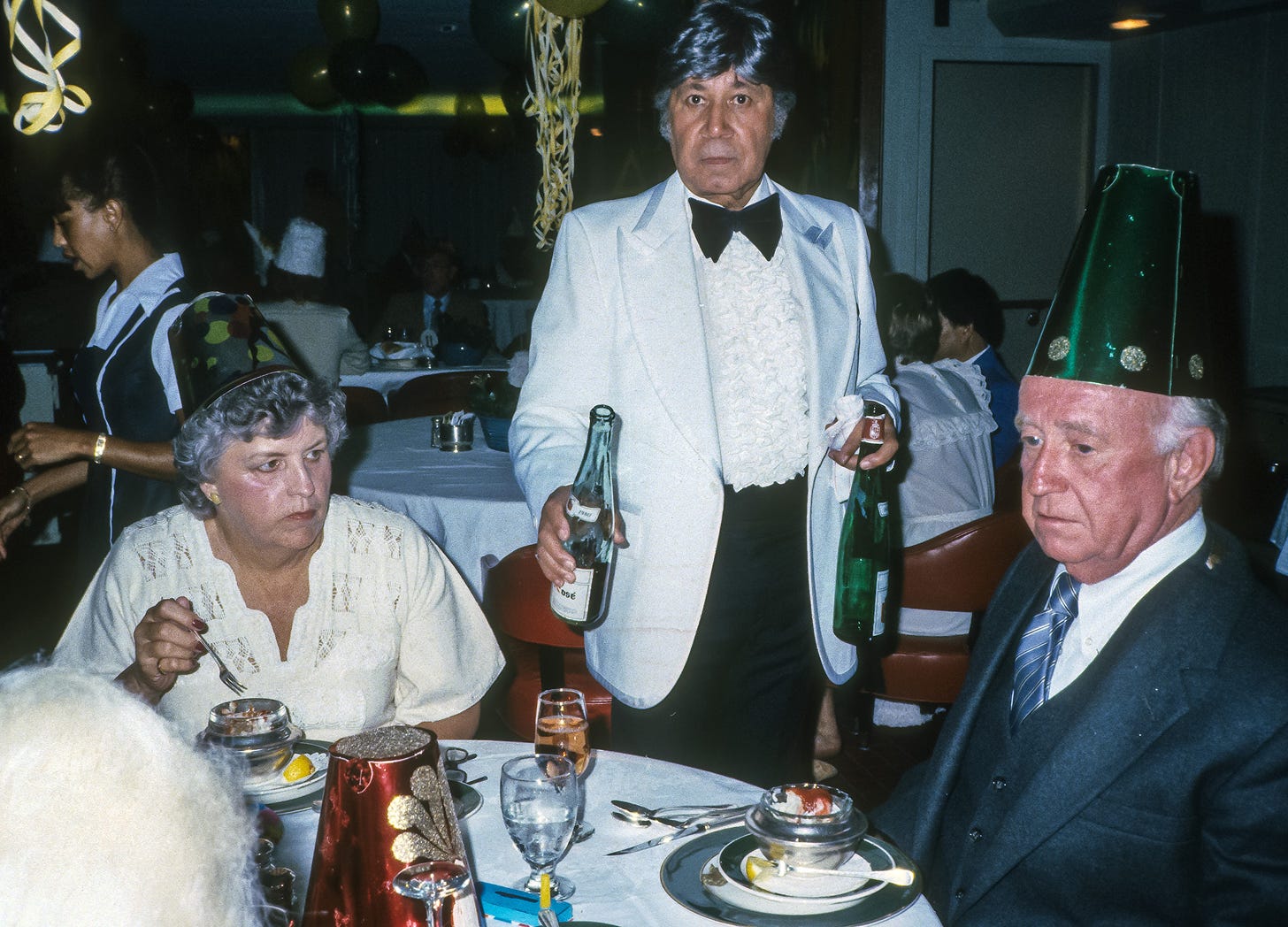The Spiel Is Part Of The Show
Servers aren't becoming more talkative. They're just doing their jobs.
This week, New York Magazine’s veteran food editor Alan Sytsma caused a bit of a stir with his Grub Street rant, “The Spiel Has Become a Scourge.” In it, he describes the Spiel thusly: “The increasingly long monologue that every waiter in town must now deliver to tables at restaurants of a certain price point at the start of each meal to talk through … menu highlights?"
Awful, right? Shrimp, steak, linguine — no matter how obvious, it’s all fair game whenever the server is reaching into their grab-bag of tricks, Sytsma argues, and, quite frankly, he’s had enough of it. Couldn’t we all do with a little less preamble before our meal, he wonders.
Yeah, of course we could. Time is money, right? At least in this productivity and self-optimization-obsessed age. Plenty of commenters have sided with Sytsma and his somewhat cynical take (“the Spiel is OG restaurant guerrilla marketing”), pointing out that, as fellow seasoned diners, they too could do with a lot less Spiel. But just as many people have landed in the pro-Spiel camp, labeling Sytsma's piece "bratty", and accusing him of being guilty of the Spiel himself, only in written form.
Us? We’ll side with the latter, and we’d argue that Sytsma, in all his experience and wisdom, is perhaps missing the point. Isn’t the Spiel part of the social contract one agrees to when entering a restaurant? Isn’t it just the type of theatrics, especially when delivered deftly, with the right mix of information and flair, that we’re paying for?
You’d think, and yet in this Golden Age of social awkwardness, when so many of us are terminally online and forget the social graces that are part and parcel with IRL interaction, perhaps we need some reminders.
Dinner is theater. Always has been, always will be. And that couldn’t be more true than now, when going out to a restaurant remains the one constant form of live entertainment in our otherwise increasingly isolated digital lives. We rarely go to dinner and a movie anymore. Ditto the club. When was the last time you went to the ballet? A play? But we go to restaurants, full stop. Restaurants are our most beloved and popular human ritual.
And, yes, one of the elements of that ritual is the Spiel. It's the act one curtain-raiser. We don’t ask our spouses, parents, roommates, or the food delivery guy what they’d recommend. We ask our server. Our server, no matter how gastronomic we might fancy ourselves to be, is our Willy Wonka on this magical culinary journey. Meaning their Spiel is part of the show. Without that performance, we’ve lost yet another personal touchpoint in the hospitality experience. And then what’s next, touch-screen kiosks in Michelin-starred spots?
Do servers have off nights? Of course, they do. And the odds of hearing a lackluster or rambling Spiel increase the more you eat out. But when done right, a Spiel engenders a good feeling, one of being cared for by a competent, knowledgeable waiter who excels at small talk and takes into account your allergies or dislikes (within reason), all while serving plates of delicious/inventive/comforting food you ordered as quickly as possible.
The problem with dining out isn't the Spiel, it's a mix of QR codes and tiny menus in restaurants lit like funeral homes, but that's a whole other coupla hot takes right there.
From the server's point of view, the Spiel helps connect with customers and potentially upsells them. But it's also a way to manage cranky food editors and basic, standard-issue, all-American, dumb-dumbs. 'It was a safety net,' says a 10-year veteran of the service industry, who texted us. "I really loved having a Spiel. I could make it my own."
This former server, who worked for Danny Bowien and April Bloomfield, would prefer to remain anonymous due to fear of retribution from anti-Spiel mobs.
While foodies, for lack of a better term (a term that is in and of itself a scourge), may think they're qualified to navigate a menu, oftentimes, that's just their ego talking. "If you haven't worked in food service, you don't know how many people ask the same f**cking thing over and over."
"Maybe somebody's Spiel is inane," she added, "But mine was perfect. I worked on it with just the right amount of charm and information. I gave the customer advice. I gave them space. I held their hand."
The solution to Sytsma's totally made-up problem can be found in the first few sentences of his piece, when a server asks, “Are you good on the menu, or should I do my Spiel and walk you through?” He chooses the latter out of obligation. If you know you're waiting on this dude, do yourself a favor and don't give him the choice. Otherwise, Spiel away. How many shrimp come in the shrimp cocktail?






gonna need these hats